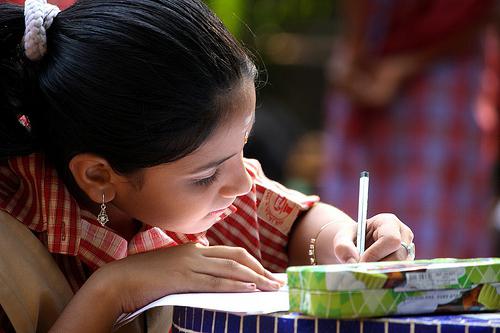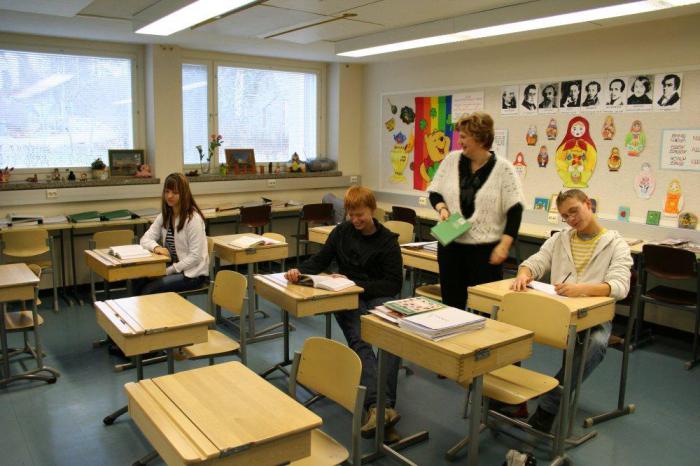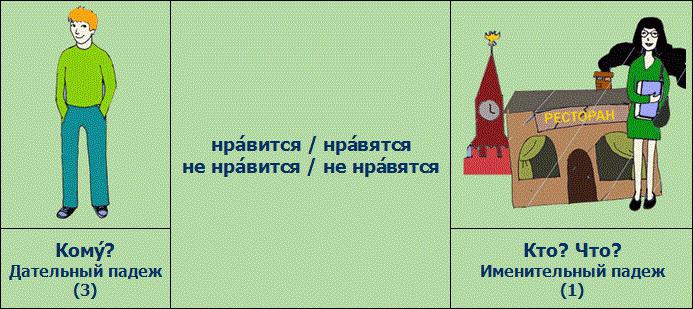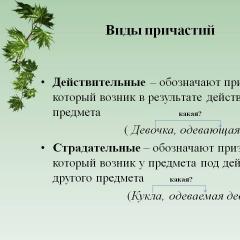Pades of the Russian language. How many cases in Russian?
The case is the form of education and the function of the word, putting words with certain syntactic roles in a proposal, a link between individual parts of the speech of the sentence. Another definition of the case is the declination of words, speech parts characterized by a change in their endings.
The ownership of perfection by the ability to declines different parts of speech on cases is a distinctive feature of a person competent formed. Often, the school program, in detail the clarifying cases of the Russian language, is forgotten after a few years, which leads to gross mistakes in drawing up the proper structure of the proposal, which is why members of the sentence become not agreed among themselves.
An example of an incorrect word declining
To understand what we are talking about, it is necessary to consider an example showing the incorrect use of the word of the word.
- Apples were so beautiful that I wanted to eat them right away. Their shiny red skin hid a juicy flesh, promising truly amazing taste enjoyment.
In the second sentence, there is an error pointing to the fact that the case of nouns in Russian is safely forgotten, so the word "taste" has improper decline.
The correct option would be the writing of the sentence as follows:
- Their brilliant red skin hid a juicy flesh, promising truly amazing pleasure (what?) Taste.
How many cases in Russian, so many forms change the endings of words that determine the correct use of not only the case-form, but also the number, genus.
I wonder what percentage of adults who are not related to writing, editorial, educational or scientific activities, remembers how many cases in Russian?
The disappointing results of the total dictation, spent this year, leave much to be desired by showing an insufficient literacy rate of most of the population. Only 2% of all participants wrote it without a single mistake, having received a well-deserved "five."
The greatest number of errors was revealed in the arrangement of punctuation signs, and not in the correctness of spelling words, which makes the results not so crying. With the correctness of writing words, people are not experiencing special problems.
And for the correct declination of them in the proposal, it is worth remembering the names of the case, as well as what questions the word is responsible in each specifically case. By the way, the number of cases in Russian is equal to six.
Brief characteristic of case
The nominative case is most often characterized by the subject or other main parts of the sentence. He is the only one is always used without prepositions.
Parental case characterizes belonging or relatives, sometimes other relationships.
The underlying case defines a point that symbolizes the end of the action.
The accusative case is the designation of the direct object of action.
The cleaner case indicates a tool with which an action is performed.
The proposed case is used only with pretexts, denotes a place of action or indicates an object. Some linguists tend to separate the proposed padege into two types:
- an explicit, answering questions about whom "," What? " (characterizing the subject of mental activity, story, narration);
- local, answering the question "Where?" (directly terrain or hour of what is happening).
But in modern educational science, it is still accepted to allocate six major paders.
There are cases of Russian language adjectives and nouns. The declination of words is used both for the sole and for a plural.
Pades of the Russian language nouns
The noun is part of speech, denoting the name of objects, acting in a proposal as a subject or addition, which is responsible for "Who?" or "What?".
The variety of ways to decline the words makes a multifaceted and rich Russian to the perception of foreigners. Padege names nouns inclined the word, changing his ending.

Cumulative forms of nouns can change the endings, answering questions:
- regarding animated entities - "Who?", "Who?";
- inanimate objects - "What?", "What?".
Pade | Questions | Examples of ending changes | Prepositions |
Nominative | Boy (), ball () | ||
Genitive | Who? What? | Boy (a), ball | |
Dative | Who? What? | Boy (y), ball (y) | |
Accusative | Who? What? | Boy (a), ball () | On, for, through, about |
Instrumental | Boy (OM), ball (OM) | For, under, above, before, with |
|
Prepositional | O Com? About what? | Boy (E), Ball (E) | Oh, on, in, about, when |
Unclear noun
There are nouns used in any case without declining endings and non-multiple numbers. These words:
- kangaroo, taxi, metro, flamingo;
- some of the own names of foreign origin (Dante, Oslo, Show, Duma);
- nine foreign nouns (Madame, Mrs., Mademoiselle);
- russian and Ukrainian surnames (long, gray, grischko, stedetko);
- complex abbreviations (USA, USSR, FBI);
- the names of women denoting male objects (Alice Beetle, Maria Kol).

Changing adjectives
Adjective names are an independent part of speech, denoting signs and characteristics of an object that answers questions "What?" What? "What?", What? ". The proposal acts as definition, sometimes a failed.
![]()
Just as a noun, inclined by cases by changing the endings. Examples are shown in the table.
Pade | Questions |
| Prepositions |
Nominative | |||
Genitive | Who? What? | Kind (wow) | From, without, y, up, near, for, around |
Dative | Who? What? | Kind (wow) | |
Accusative | Who? What? | Kind (wow) | On, for, through, about |
Instrumental | For, under, above, before, with |
||
Prepositional | O Com? About what? | Oh, on, in, about, when |
Adjective
Russian cases are able to change all the adjectives, if they are not represented in a brief form, answering the question "What?". These adjectives in the proposal act as a believer and are not inclined. For example: He is a smart.

Cases of multiple numbers
National names and adjectives can be in the only and multiple number, which also reflects the case of Russian.

The multiple number is formed by changing the end, the decline of words, depending on the question, which corresponds to the case of or without the same prepositions.
Pade | Questions | Examples of changes in the endings of nouns names | Examples of changes in the endings of adjectives | Prepositions |
Nominative | Boy (s), ball (and) | Kind (s), red (s) | ||
Genitive | Who? What? | Boy (s), ball (her) | Kind (s), red | From, without, y, up, near, for, around |
Dative | Who? What? | Boy (AM), Ball (AM) | Kind (s), red (s) | |
Accusative | Who? What? | Boy (s), ball (s) | Kind (s), red (s) | On, for, through, about |
Instrumental | Boy (Ami), ball (s) | Kind, red (s) | For, under, above, before, with |
|
Prepositional | O Com? About what? | Boy (ah), ball (ah) | Kind (s), red | Oh, on, in, about, when |
Features of the parent and vinitive case
Some people have difficulty and a certain confusion of two cases with the same, it would seem, the questions responsible for which the lonely word is responsible: the genital case and the question of "who?", And the accusative case with the question "Who?".
For ease of understanding, you should remember that in the parental case, the word is responsible for the following questions:
- at the party there was no "whom?" (Paul), "What?" (champagne);
- in the store there was no "Who?" (seller), "What?" (of bread);
- in the prison cell there was no "whom?" (prisoner), "What?" (beds).
That is, the case indicates the belonging of the object, making the focus on the event itself, and not on the subject.
In the divergent case, the same phrases sounded as follows:
- at the party delivered "whom?" (Paul), "What?" (champagne);
- the store did not bring "Who?" (Seller) "What?" (bread);
- in the prison chamber did not find "Who?" (prisoner) "What?" (bed).
The case indicates directly to the object around which the action is performed.

The ability to properly add different parts of speech on cases, the number, the genus is a distinctive feature of a person's smart, competent, highly evaluating Russian language and its basic rules. The desire for knowledge, repetition and improvement of knowledge is a distinctive feature of a highly intelligent personality capable of self-organization.


